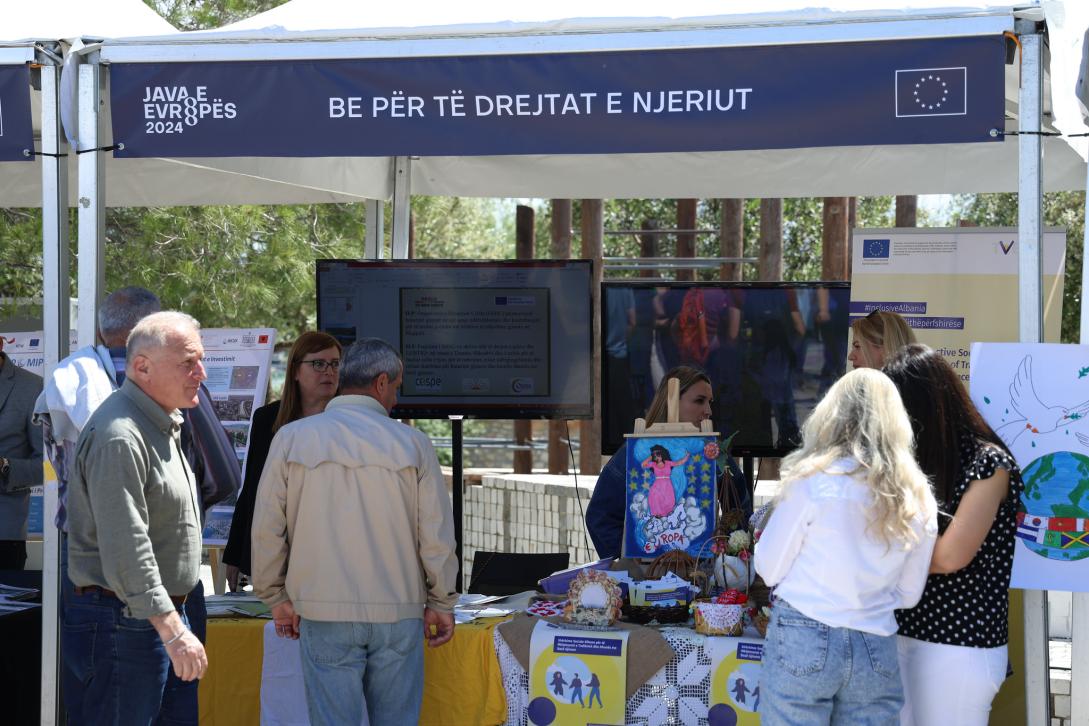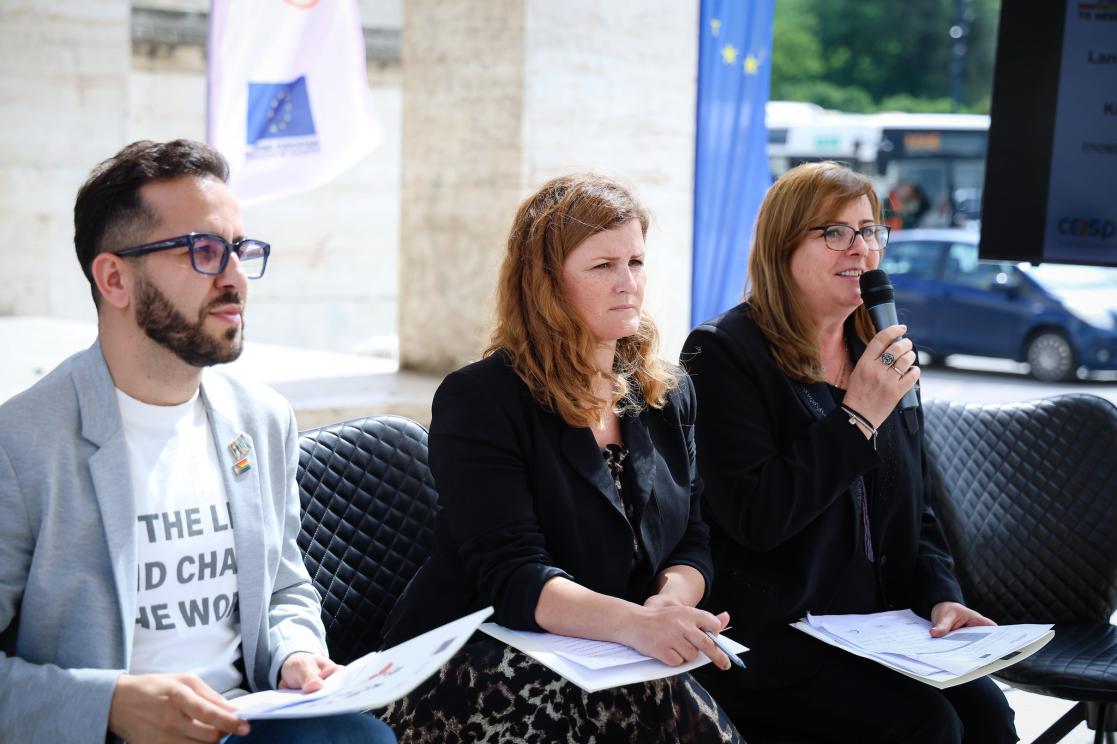Proud to have Rights: Promoting equality, social inclusion, and non-discrimination in Albania

"We often tend to reject things we haven't heard about, things we don't know, or things we don't want to know. This is why more awareness is needed. The more we talk about human rights, the more we will understand and accept them," says Rozeta Gradeci, the representative of COSPE (Cooperation for the Development of Emerging Countries) in Albania, who has been working on human rights for around 25 years. Throughout various projects, she has come to understand how mentality defines a society and shapes the destinies of several communities, indicating how they live, feel, and experience themselves. The right to be who you are, without judgment, has been difficult alongside the efforts that have been made.
"Information campaigns are important to raise awareness and promote women's empowerment and LGBTIQ+ rights, as well as joint efforts with government institutions, because human rights are not just about individuals, but also about social welfare. As citizens, we all have the right to live together in a diverse society that allows everyone to participate without fear of discrimination, harassment, prejudice, or exclusion," she adds.
Gradeci is currently working on the project "Proud to have Rights: Promoting equality, social inclusion, and non-discrimination of WOMEN and LGBTIQ+ people in Albania," which aims to empower civil society organizations on women's rights and LGBTIQ+ issues in the areas of Tirana, Shkodra, and Lezha to play their role in protecting and providing services for gender equality and against gender-based violence.
The EU-funded project, involving COSPE, the Women's Center "Light Steps," and OMSA (Open Mind Spectrum Albania), is a three-year program aimed at achieving more effective gender-sensitive policies in Albania.
"We want to create an agenda that includes interventions to improve women's rights and the LGBTIQ+ community. Organizations working with human rights, women, and members of the LGBTIQ+ community will be invited to identify problems in their areas and suggest solutions. These suggestions will then be used to develop agendas, which will be presented at inter-institutional roundtables to request action plans," explains Denada Shpuza, Head of the Women's Center "Light Steps" in Shkodra. Part of the program also focuses on improving services provided for victims of gender-based violence, including psychosocial support, employment, education, and other opportunities that would empower them.
In an effort to ensure a life free from all forms of violence and discrimination for women and LGBTIQ+ individuals, the project aims to eliminate visible and invisible barriers and pave the way for full access to civil and political rights.
For Arbër Kodra, executive director of OMSA (Open Mind Spectrum Albania), a comprehensive approach combining advocacy, education, and direct support is needed to break down harmful patriarchal attitudes and combat discrimination.
"It's not just about new laws; it's about making real, positive changes and building a community where everyone, regardless of gender or sexual orientation, feels respected and safe. For women and LGBTIQ+ individuals, this project means feeling safer in their communities, experiencing better mental health, and having more opportunities to participate in social and economic activities. By creating a supportive environment that amplifies the voices of those who are often unheard, it's about transforming lives and building a society where everyone can thrive," emphasizes Kodra.

EU Delegation to Albania
National campaigns in public events and social media are part of the program. Additionally, an Academy of Gender Rights will train young people in capacity building to promote women's and LGBTIQ+ rights. Embracing values and rights to live and love, they will bring about the change needed for a society that includes everyone.
BACKGROUND INFORMATION
“Proud to have rights- Promoting equality, social inclusion, and non-discrimination of WOMEN and LGBTIQ+ people in Albania” is an EU funded project. The target groups are 30 CSOs, networks and active groups for women's rights and LGBTIQ+. It includes 1,500 women and LGBTIQ+ activists, 300 women and LGBTQI+ victims of GBV and discrimination. The programme aims to work with ministries, policy makers at the local and central level, dealing with human rights and social welfare issues, work and education, and involve social workers, psychologists and teachers. The ultimate beneficiaries are 5,000 people connected to Women's Groups and LGBTIQ+ communities, including families and peers and 20,000 people from local communities and society in general (mainly in Northern Albania).





